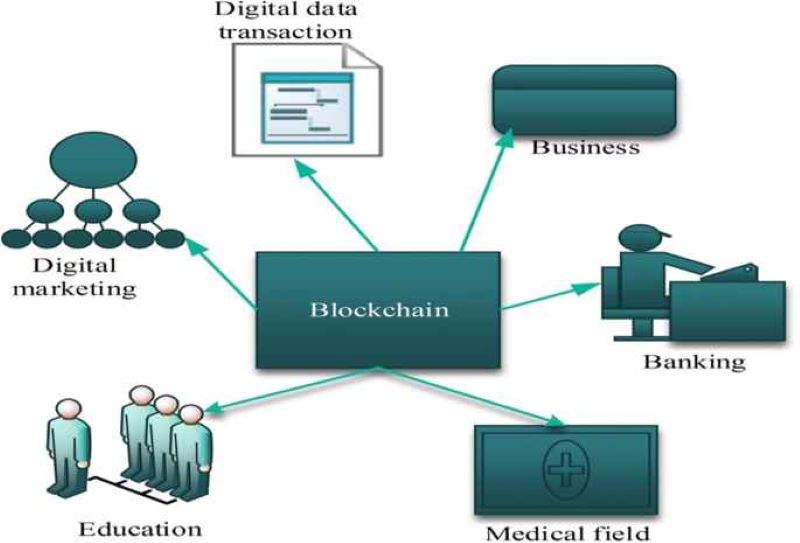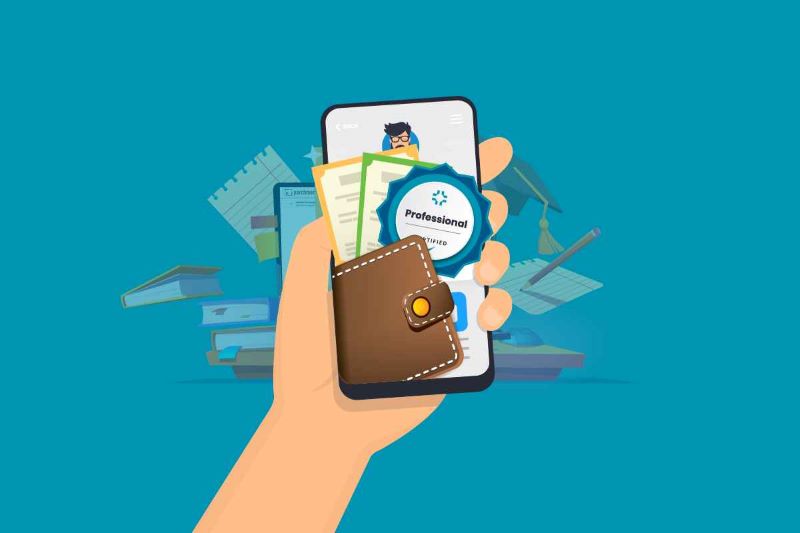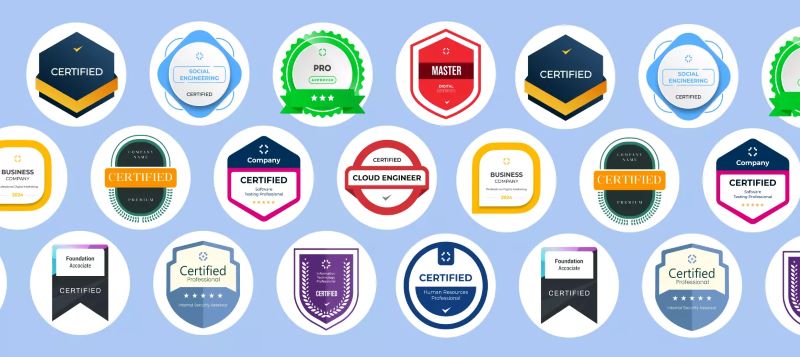Imagine keeping your academic achievements in a digital wallet—secure, private, and easily shared with schools and job prospects. This isn’t a far-off dream. The game-changer is Student data portability with blockchain, transforming how we handle educational records. Forget about the age-old hassle of requesting transcripts or proving your academic history. Blockchain is enabling a world where your credentials go wherever you do. In this article, I’ll show you how the blockchain framework does more than just store digital coins—it’s quickly becoming the backbone of a new, decentralized system for managing academic data. Say hello to streamlined verification, interoperable records, and complete control over your educational credentials. Dive in with me, and let’s explore how this tech shapes the future of learning data management.
Unveiling the Blockchain Framework in Education
Enabling Secure and Private Academic Record Management
Schools keep lots of student info. Grades, classes you took, projects you did. It’s important stuff. But guess what? Blockchain can make keeping this info safe and private even better. Imagine a locked box no one can peek into without your say-so. That’s kind of like what blockchain does for your school records.
Now, what is blockchain? It’s like a chain of digital lockboxes. Once something is inside, it’s super safe. No one can change it, not even a tiny bit. It’s perfect for keeping your info safe. You might worry about someone seeing your grades without asking you. Blockchain stops that. It’s like having a guard for your info.

We use “secure student information sharing” with blockchain. This means schools can send your records to other places when needed. They might send them to a new school if you move. Or maybe to a college when you’re trying to get in. This needs to be safe, so no one else gets your info.
Now, “education credential verification” is a fancy way of saying checking if your grades or certificates are real. Blockchain is super at this. You see, when something is put on blockchain, it’s easy to prove it’s real. No fake stuff can get in, which is awesome.
Spearheading Decentralized Education Data Systems
“Decentralized” is a big word. It just means no one boss has all the power. For your school stuff, it means there is no one place where all your records are kept. Instead, they are spread out but still connected.
This is great because if something bad happens in one place, your info is still safe in others. You might hear people talk about “interoperable learning records.” It’s like Lego blocks. They can fit together in lots of ways. Blockchain does this for your school records. So, no matter where you go, your records can come together in one big, clear picture.
We also have things like “digital academic wallets.” You can think of them as backpacks where you put all your important school papers, but it’s all online. And guess what? Blockchain keeps this backpack safe. So, you can show off your grades or projects anytime, and everyone will know it’s all real and all yours.
Lastly, “cross-border educational data transfer” is about moving your school stuff from one country to another. And “student mobility with blockchain” helps you do just that. It’s like having a passport for your brain. When you learn new things, you get stamps in it. Blockchain makes sure nobody can mess with those stamps.
In simple words, using blockchain in schools makes sure everything about what you learn and do is kept safe. And only the people you say yes to can look at it. It’s a way to make school life a bit easier and a lot safer. Isn’t that cool?
Authenticating Academic Achievements with Blockchain
Streamlining Education Credential Verification
Imagine you need to prove you graduated. In the past, it was a hassle. You’d request transcripts, wait, and hope they get there on time. Now, picture blockchain swooping in to save the day. Blockchain makes checking school credits fast and simple. Here’s why: blockchain keeps records safe and stops them from being changed or erased. So, when you show your diploma, people can trust it’s real.
Blockchain isn’t just a tech buzzword; it’s a game-changer for how we handle education records. It makes sharing student info secure. You won’t lose sleep over who sees your grades. Only folks with permission, like schools or job places, can peek. And they don’t need to call your old school – a quick check on the blockchain, and bam, they know you’re the real deal.
Now, it isn’t all about grades. This tech also keeps your identity on lockdown. No more worries about someone stealing your name or school deeds.
Advancing Interoperable Learning Records and Digital Wallets
Hop on the interoperable learning record train! This is a big deal. It means no matter where you study, your learning record works with other schools’ systems. You could move from one place to another without that headache of transferring credits.
And digital wallets? They’re like superhero tool belts for your school life. All your wins – courses, badges, all that jazz – stay in one spot. You take control of them, carry them with you, and they’re all backed-up by blockchain’s oomph. This means your academic history, it’s all there, on your phone or laptop, ready to show the world when you need it.

It’s like having a lifelong learning passport. Every class, workshop, or seminar – it’s all stamped in your digital wallet. No matter where your brain-hungry adventures take you, your learning passport is the ticket to showing off your smarts.
In short, blockchain punches up how we share and check what we learn. It’s about keeping it real with your school record, safe and ready to go, anytime, anywhere. It’s about handing you the reins to your academic story. No stress, no mess, and it’s 100% yours. So with blockchain, you can wave goodbye to the old days of lost papers and slow systems. Welcome to the future – it’s streamlined, secure, and student-smart.
Fostering Global Student Mobility and Data Exchange
Developing Smart Contracts for Academic Records
Imagine a world where moving schools is easy as pie! With blockchain, it’s real. Schools use smart contracts for keeping track of grades and diplomas. Just like a regular contract, but it’s digital and runs by itself! This means no more lost papers or waiting forever to get your records. When you’re ready to go to a new school, your data is ready too, safe and sound. With everything on blockchain, it keeps your info secure and makes sharing super fast.
Blockchain tech lets different schools talk to each other easily. So when you move, your new school can check your records fast, without a sweat. This is top-notch for students studying abroad or switching schools. It’s like having an academic passport that works everywhere!
Reinforcing Compliance with GDPR and International Privacy Standards
Now, keeping student data safe is a big deal. Schools must make sure they’re doing it right. GDPR is a set of rules to protect people’s data in Europe, but it helps students all over. Blockchain is awesome here because it’s all about keeping data private and in the right hands.
When schools use blockchain, they make sure your info can’t be seen by just anyone. Only folks with permission, like your new school, can peek at your data. This locks down your info so that you don’t get any unwanted surprises. And because blockchain keeps data so safe, it’s easier for schools to follow the GDPR.
A world where your school records are safe, and moving schools is a breeze? Thanks to blockchain, that’s the future we’re heading to. It’s smart, fast, and super safe – just what we need for a world that never stands still!
Empowering Learners through Data Ownership and Portability
Implementing Lifelong Learning Passports and Digital Badges
Imagine you had a key that opened every door in your education journey. This is what blockchain offers for your school records. It makes sure you’re the boss of your own learning files. So, what does this mean for you?
First off, you have a lifelong learning passport. This passport is like a backpack where you keep all your learning stuff, safe and sound. You can show it off when you want to study more, get a job, or move places. The cool part? It can’t be messed with, thanks to blockchain.

Next up, we’ve got these shiny things called digital badges. They’re proof of what you’re great at. You can earn them from all kinds of learning – online courses, workshops, or school. Then, you pin them in your digital wallet, like stickers on your phone.
Blockchain makes all this top-notch and trustworthy. It stops others from trying to fake your achievements. So when it’s time to share your skills, everyone knows it’s the real deal. How cool is that?
Establishing Interoperability for Seamless Academic Journeys
Let’s talk about interoperable learning records. Big word, simple idea – your school files can shake hands and work with others around the globe. This means your grades and credits can tag along wherever you go. It’s like having friends all over the world who all speak the same language!
With blockchain, moving schools or going abroad gets a whole lot smoother. No more headaches about sending files and proving you learned something. It’s all on the blockchain – safe, sound, and ready to go. It’s like your passport never expires.
And, don’t sweat about who sees your info. Blockchain keeps your records under wraps until you say so. It’s like having a secret base for your school stuff. Only you know the secret knock.
So, whether you’re learning here, there, or anywhere, blockchain for education keeps you moving without a bump in the road. It’s your education and you call the shots.
Blockchain is the superhero in making sure your learning journey is all about you. Everywhere you go, blockchain makes sure your learning shines!
In this post, we peeled back the layers of blockchain’s role in the education sector. We looked at how it offers secure ways to manage student records and aids in creating decentralized data systems. Tools like digital wallets and learning passports came up too, showing the tech’s potential to verify academic achievements with ease.
We also discovered how blockchain could support students moving across the world, making record exchange simple and legal. Finally, we talked about the power it gives learners over their own data, fostering a seamless academic journey.
I believe that as blockchain tech matures, it’ll make learning more fluid and trusted. It promises a future where education is both secure and easily shared, offering benefits for students, educators, and institutions. Let’s keep an eye on this space as it shapes how we learn and grow.
Q&A :
How does blockchain technology enhance student data portability?
Blockchain technology enables a secure, immutable, and transparent way to store and share student data. With blockchain, educational records can be easily transferred between institutions because the data is verified and recorded across a network, reducing the risk of information being lost or tampered with. This leads to a streamlining of processes such as enrollment, credit transfer, and qualification verification.
What are the benefits of using blockchain for student records?
Using blockchain for student records offers multiple benefits, including increased data security due to encryption and decentralization, which reduces the chances of data breaches. It also promotes the accuracy and authenticity of the records, as blockchain data cannot be altered once recorded. Additionally, the portability and immediate availability of the data simplify administrative procedures and can potentially reduce costs associated with record-keeping and verification.
Can blockchain technology ensure the privacy of student data?
Blockchain technology can significantly enhance the privacy of student data by allowing for control and consent mechanisms throughout the data sharing process. By using private keys and permissioned access, only authorized individuals or entities can view or request the data, ensuring compliance with data protection regulations. The implementation of smart contracts can automatically enforce privacy agreements.
What challenges might institutions face when implementing blockchain for data portability?
Institutions might face several challenges when implementing blockchain for data portability, such as the need for technological infrastructure adjustments, ensuring interoperability between different blockchain systems, and establishing a common set of standards for educational data. Additional challenges include the management of costs associated with adoption, training of personnel, and ensuring compliance with global data protection laws.
Are there any existing blockchain platforms currently being used for student data portability?
Yes, there are several blockchain platforms that have been developed for student data portability. Companies like Sony Global Education have developed blockchain-based platforms to share educational data between institutions, while projects such as Blockcerts provide an open standard for creating, issuing, viewing, and verifying blockchain-based certificates. These platforms demonstrate the practical application of blockchain in enhancing student data portability.

RELATED POSTS
Blockchain Revolution: Safekeeping Educational Data in the Digital Age
Embrace blockchain's impact on educational...
What are the key blockchain technology advancements 2025
The world of decentralized technology...
Tokenization in Education: Can Blockchain Revolutionize Learning Access?
Tokenization of educational resources with...
What is rate limit exceeded on twitter?
What is rate limit exceeded...
BoxBet Airdrop – Your Ultimate Guide to Earning BXBT Tokens
The BoxBet Airdrop is making...
Elastic Chain: The future of Layer-2 Blockchain networks
Elastic Chain ushers in a...
Smart Contracts: Unlocking Efficiency and Security in Transactions
Advantages of smart contracts -...
Variational Airdrop: VAR Token hunting guide
Variational is a Peer-to-Peer (P2P)...
Near coin Revolution: Is this the Crypto you’ve been waiting for?
Near Coin is making waves...
Kamino Airdrop – Investment Opportunities in DeFi on Solana
Kamino airdrop offers a potential...
What is Notcoin? Explore 3 hidden secrets of Notcoin
“What is notcoin” is a...
What is blockchain technology in simple terms for beginner
What is blockchain technology in...
How does DALLE work? A Comprehensive guide to AI Art generation
How does DALLE work? This...
LooksRare NFT: A new generation NFT exchange
LooksRare NFT has quickly emerged...
PAWS Airdrop – Earn tokens easily through Telegram
PAWS Airdrop opens up an...
Starknet: A Layer-2 scaling solution for Ethereum
Starknet is rapidly gaining traction...